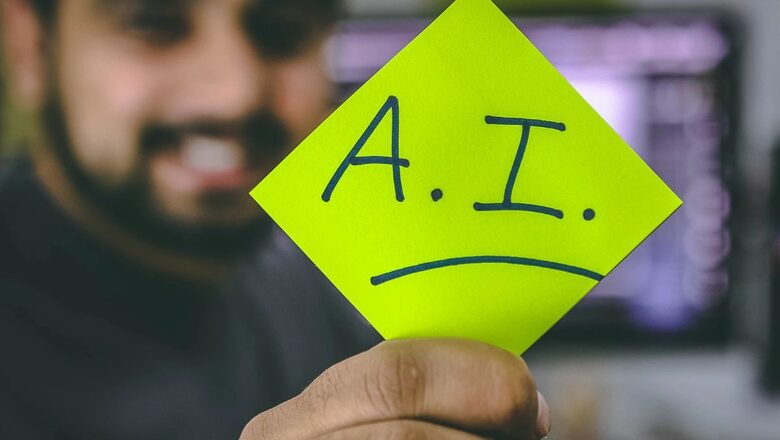
views
At a time when speculations began to appear around Google potentially letting go of its staff due to Artificial Intelligence (AI) advancements, reports highlighted that over a few months Paytm’s parent firm, One97 Communication, fired over 1,000 employees across various departments to streamline costs. It was reported that the company’s restructuring was primarily facilitated by AI progress, which rendered some roles redundant within the organization.
Around the same time, late last year, The New York Times revealed that it had filed a copyright infringement lawsuit against the most talked about AI company OpenAI and tech giant Microsoft, which is a key investor of the company.
While NYT is the first major news publisher to sue the AI creators in a copyright case, earlier last year, Getty Images accused AI image generator company Stability AI of copyright infringement for copying and processing millions of its images and metadata.
Recently in India, deepfake videos, another product of AI technology, raised major concerns. Considering how serious such issues are and how wrongfully the technology can be used, the Ministry of Electronics and IT has issued a comprehensive advisory to all intermediaries, directing them to comply with the existing IT Rules.
Additionally, it should be noted that according to a study by ServiceNow and Pearson, a staggering 16.2 million Indian workers will need to reskill or upskill for the AI and automation wave, even as it creates 4.7 million new tech jobs.
However, still, most industry insiders believe that while the potential for both positive and negative effects is undeniable, the odds favour a net positive impact of AI, if its development can be steered in the right direction.
For example, Amit Relan, Co-Founder and CEO of mFilterIt, agreed that AI operates as a double-edged sword. According to him, the use of AI has the power to revolutionize traditional work methods and by automating tasks and ensuring precision, AI facilitates faster processes, diminishing human error and effort.
Additionally, he said: “AI has also revolutionized fraud detection methods. It has transformed how we detect and combat fraud by uncovering sophisticated patterns that slip through manual checks, resulting in faster decision-making processes.”
Prateek Garg, Founder and CEO of WorkElevate, noted that despite the ethical challenges, enterprises are adeptly utilizing AI to improve their business processes. From a business perspective, he believes that through responsible implementation of Employee AI Chatbots and Large Language Models (LLMs), organizations are now optimizing operational workflows.
“This not only enhances employee productivity, but also allows employees to focus on more strategic initiatives, letting the AI handle repetitive tasks. A lot of investments are already being made by organizations in AI for workplace management, exemplifying that AI can have a positive impact on how we work,” he added.
Meanwhile, Amit Prasad, Founder and CEO of SatNav Technologies, said: “Whenever any new technology becomes popular, there will be both pros and cons. While AI might seem like a ‘never before’ opportunity now, the fact is that several examples of the past were also unique when they were launched. So the benefits of AI are going to be more positive than negative.”
REASONS FOR OPTIMISM
Despite the concerns around AI and its impact, there is a possibility to foster continuous education and upskilling initiatives to help workers transition to roles utilizing technology, not fearing it.
Here it needs to be noted that as per the World Economic Forum report, AI might lead to the loss of approximately 85 million jobs by 2025, but it could also create 97 million new roles.
Meanwhile, some experts also suggested that focusing on developing human-AI partnerships, where each side complements the other, would help enhance productivity and creativity as AI thrives in synergy with human expertise and judgement.
Additionally, it is believed that as AI advances, so does the awareness of its potential downsides. So, governments can enact and enforce comprehensive regulations on such issues and open discussions about the opportunities and challenges of AI, involving a diverse range of stakeholders, can build trust and guide responsible development.
Global cooperation on AI governance and ethical standards is understood to be critical to ensure responsible development and prevent misuse. This is something in which India has played a crucial role during the GPAI Summit in New Delhi.
The New Delhi declaration adopted by the member countries vouched for developing a framework for AI, promoting diverse and inclusive participation in AI development and supporting projects to ensure equitable access to critical AI resources. This move has propelled the GPAI to a leading position in shaping the current and future narrative and governance structure of AI.



















Comments
0 comment